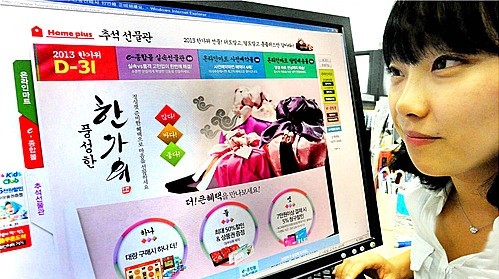
[Special Economy=Eunji Kim]Buy online products from elsewhere other than your homeland.
No matter which country, all consumers can pay the same price, notwithstanding the currency exchange rate, and same taxes--all with the other same regulations.
Korea, China and Japan are pushing their efforts to make that possible by creating their own "digital single market."
At the trilateral summit on Sunday, the above three countries emphasized the necessity of this plan and strived to strengthen the exchange between consumers and the online shopping market.
In particular, the Korean government said it will conduct research, seek cooperative strategies, and hold discussions with China and Japan.
Previously, last March, the European Union announced its own digital single market strategies. The EU said it will establish affordable delivery rates, review consumer protection regulations and analyze online purchases among the other 16 topics by next year.
“If the digital single market pushes ahead between Korea, China and Japan, it will energize the online shopping market with its online products and services and promote competition between prices,” said Jeong Byeong Sik, trade policy division director of Ministry of Strategy and Finance.
The discussion about the digital single market has just started but the problem is: exchange and refund regulations, payment systems and tax standards are becoming roadblocks.
For example, in China, when an online product is exchanged due to a change of heart, the request must be finalized in 14 days—a process that does not exist in Korea and Japan.
In Korea, when an online item is exchanged, there is a delivery fee; it’s uncertain how these kind of different rules will take effect at each of the country’s online shopping mall.
There’s also the issue of taxes. The question of where the taxes will go to, home or foreign country, has to be decided—which is not an easy task. Since this relates to a country’s finance, the topic has to be discussed carefully based on national interest.
Also, at the present, there are different online payment systems: KakaoPay for Korea, Alipay for China and Line Pay for Japan.
If a consumer in Korea buys something from a Chinese website, he or she can’t easily use that country’s payment system. The purchase has to be made by credit card or cash. The same goes vice versa.
“For online purchases, between the said three countries, to become more active, the problem of how the products are bought must be answered,” said a source from the Ministry of Strategy and Finance. “If the consumers can use the same payment system, that obstacle will be eliminated and online deals will become easier.”
One solution is to create electronic currency. But, with that, it runs into the trouble of how charges and profits should be distributed and what kind companies can participate. Furthermore, there is also the difficulty of some consumers not being able to adjust to the new electronic currency.
Neither the EU or Korea, China and Japan has yet pushed forward concrete matters relating to the digital single market.
“Since last August, we have looked into how the digital market in different countries can be unified,” said a source from the Ministry of Strategy and Finance. “But, it’s not something that can be done quickly in one day.”

